What is the Netherlands doing worldwide to prevent violence against women?
It is estimated that one in three women will experience physical or sexual abuse in her lifetime. ‘That’s got to stop,’ says Pascalle Grotenhuis, Ambassador for Women’s Rights and Gender Equality. The Netherlands supports civil society organisations all over the world that take action to prevent and combat violence against women and girls.
The Orange the World campaign focuses on this challenge. The 16-day campaign begins on 25 November – the International Day for the Elimination of Violence against Women – and runs to International Human Rights Day on 10 December.
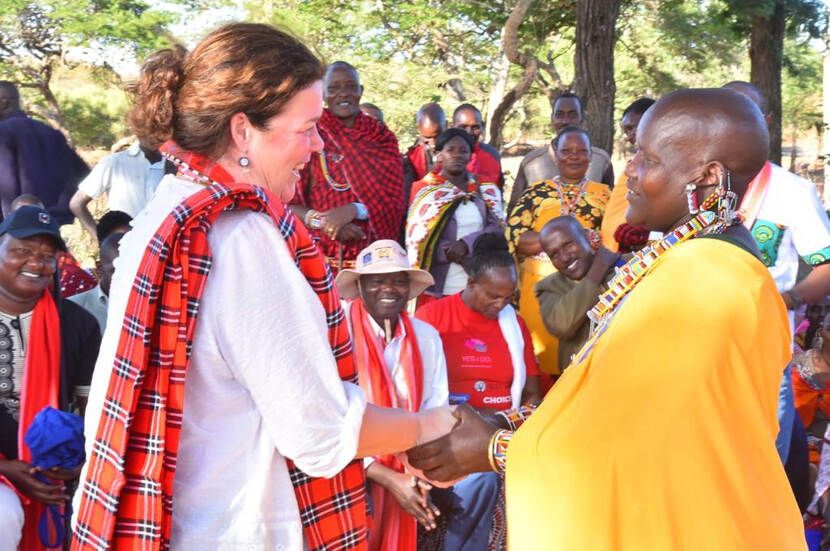
Gender-related violence
Violence against women and girls is the most common human rights abuse in the world. ‘Gender-related violence comes in many forms,’ says Pascalle. ‘It includes domestic abuse, rape within marriage, human trafficking, forced child marriage, sexual violence in conflict situations, female genital mutilation and online violence.’
Violence is often both a consequence and a cause of the inequality experienced by women all over the world. ‘To prevent violence against women and girls, we need to tackle the underlying causes, like harmful social norms, gender stereotypes and discrimination,’ Pascalle points out. ‘And to do that, we also need men and boys and local, political and religious leaders of this world.’
SDG5 Fund
The United Nations’ Sustainable Development Goals (SDGs) include agreements on protecting women and girls. SDG 5 focuses on equal rights for men and women and empowerment of women and girls. ‘This is a major priority for the Netherlands,’ says Pascalle. For this reason, the Netherlands has launched the SDG5 Fund, one of the biggest funds in the world in this area. There is a total of nearly €500 million in this fund for the 2021-2025 period.
With this fund, the Ministry of Foreign Affairs not only supports women’s rights organisations, but also programmes that specifically target men and boys. The SDG5 fund comprises four theme-based funds:
- Power of Women (PoW)
- Women, Peace and Security (WPS)
- Sexual and Reproductive Health and Rights partnerships (SRHR)
- Leading from the South (LFS)
Power of Women
The Power of Women fund focuses on women’s rights organisations that help women and girls and men and boys to stand up for women’s rights. The Young Women 4 Awarenes (YW4A) partnership is one of the organisations receiving support through this fund. YW4A organises leadership training for young women in Egypt, Kenya, the Palestinian Territories and South Sudan, for example.
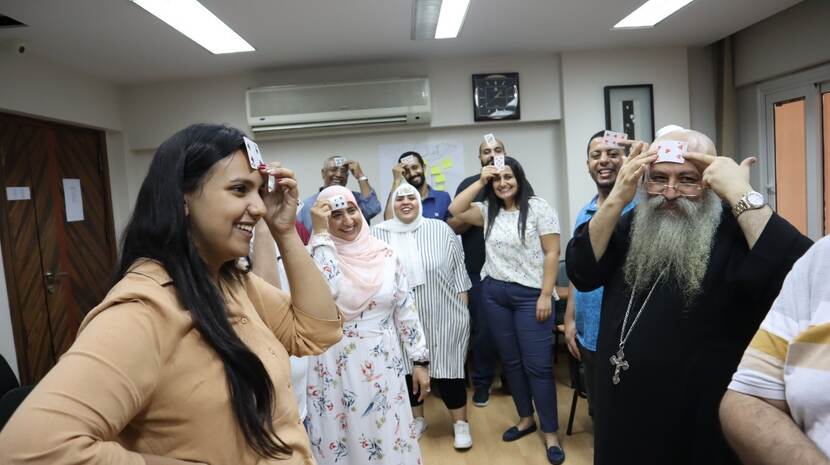
During their training, the young people learn how to defend their own rights and the rights of women in their community. ‘By investing in leadership skills for girls, you’re changing their futures, and the future of the community,’ explains Thabani Sibanda, the YW4A partnerships’ programme manager.
Since the start of the project, nearly two thousand young women have received training. ‘By 2025 we expect to have helped more than 15,000 women,’ says Thabani. ‘We’re also working with other local women’s rights organisations and religious organisations and with men and boys. These groups each have a crucial role in preventing violence against women and achieving gender equality.’
Women, Peace and Security
The Women, Peace and Security Fund focuses on protecting women and girls in conflict areas and in strengthening their position in peace negotiations.
War Child is one of the organisations receiving support from the fund. In the Palestinian Territories, for example, War Child works with local organisations and communities to give women and girls better protection against gender-related violence. ‘We’re fighting on several fronts,’ says network coordinator Fidaa Mousa. ‘Women and girls are not only the frequent victims of oppression within Palestinian society, but in many cases they also live under Israeli occupation.’
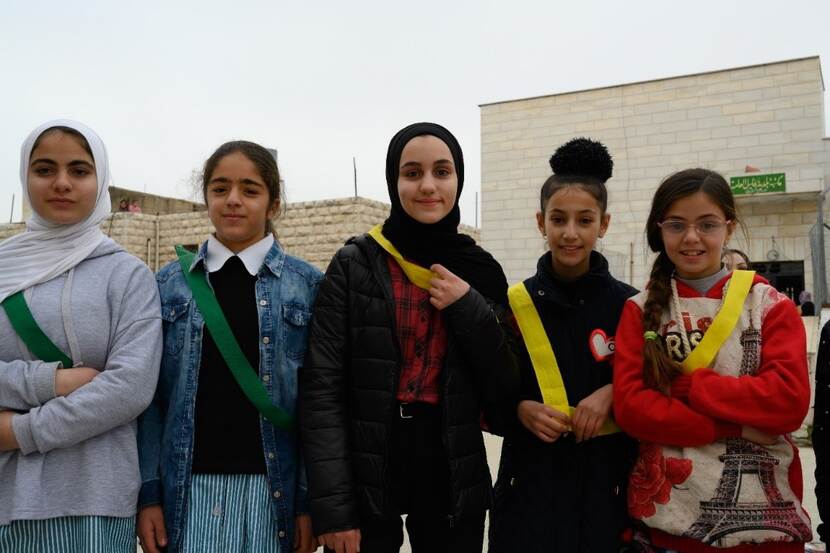
The War Child projects focus on women and girls, but also engage with men and boys. ‘If men and boys don’t change the way they treat women, change will be a long time coming,’ says Fidaa. ‘The male-dominated society – the patriarchy – needs to be dismantled with men’s help. To date, a thousand men and boys have taken part in our projects.’
The challenges in the Palestinian Territories are enormous now that violence has erupted again. ‘Women and girls face greater risks,’ says Fidaa. ‘And it’s more difficult for the project partners to do their work. But we don’t plan to stop at the 5,000 women and girls we’ve managed to reach already. We’re going to carry on.’
SRHR partnerships
The Sexual and Reproductive Health and Rights (SRHR) partnerships fund supports Plan International’s Break Free! programme in Sudan, for example. With this programme, young activists learn how to talk about SRHR problems they face. ‘It’s great to see young girls and boys gaining confidence, and entering into dialogue about SRHR in their own communities,’ says coordinator Salwa Iddriss.
Many girls have to travel long distances to school, and school isn’t always a safe place for them. ´Girls often lack access to sanitary products, clean water and adequate toilet facilities,’ says Salwa. ‘So the Break Free! programme trains boys and girls to call attention to these problems. Awareness is the first step towards change.’
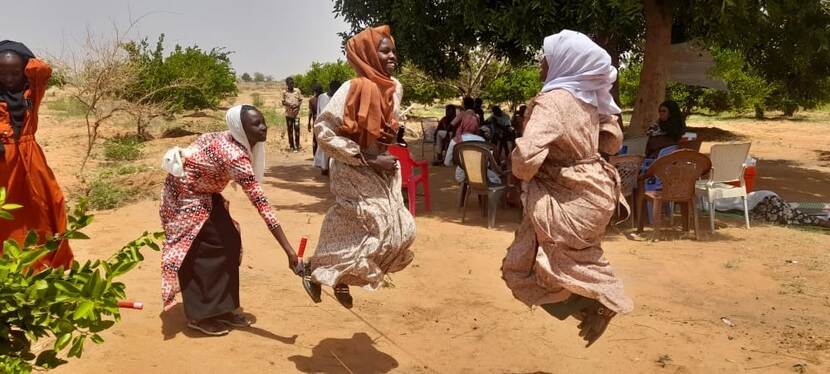
Leading from the South
The Leading from the South fund provides direct funding for women’s rights organisations, regional networks and feminist movements in the global South through three regional women’s funds and the worldwide fund for indigenous women, FIMI.
FIMI supports the Oltoilo le Maa initiative in Kenya, for example. This initiative encourages discussion on female genital mutilation, which is still a traditional custom in many of Kenya’s indigenous communities.
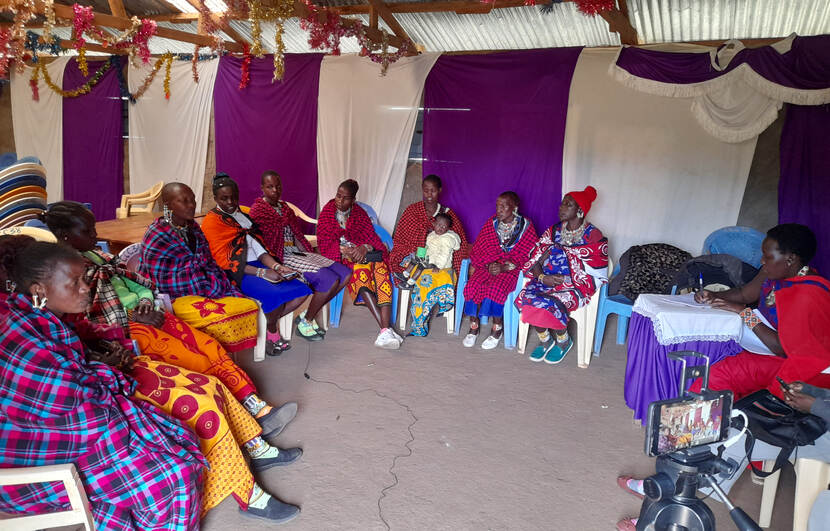
The initiative targets girls and women, men and boys, cultural leaders and the people who carry out the procedure. In terms of tradition, these are the groups responsible for keeping these cultural norms and values alive. By entering into discussion, these groups can ensure that female genital mutilation is eradicated. The Oltoilo le Maa team has seen some positive results. ‘We see that communities are open to stopping this practice.’